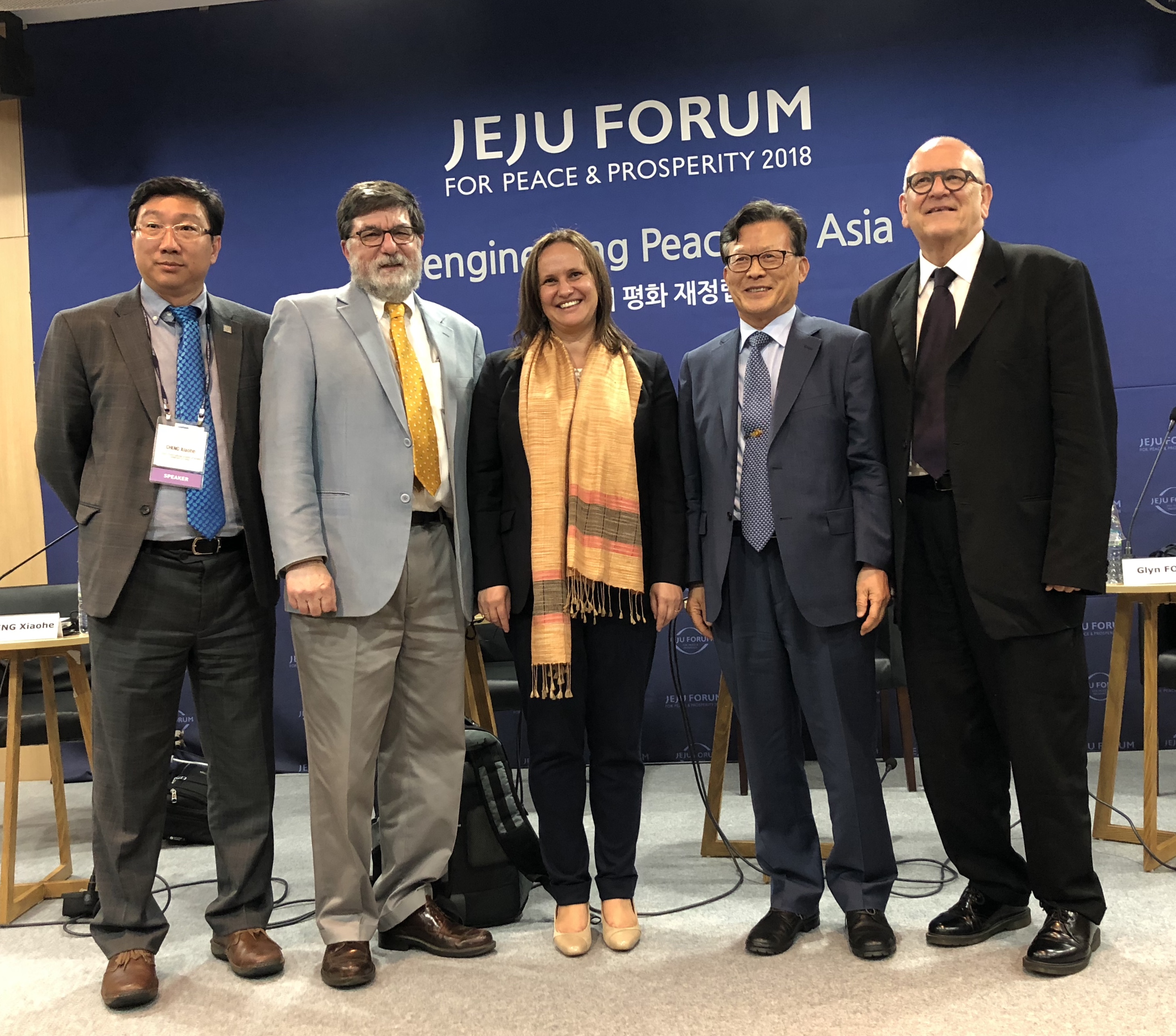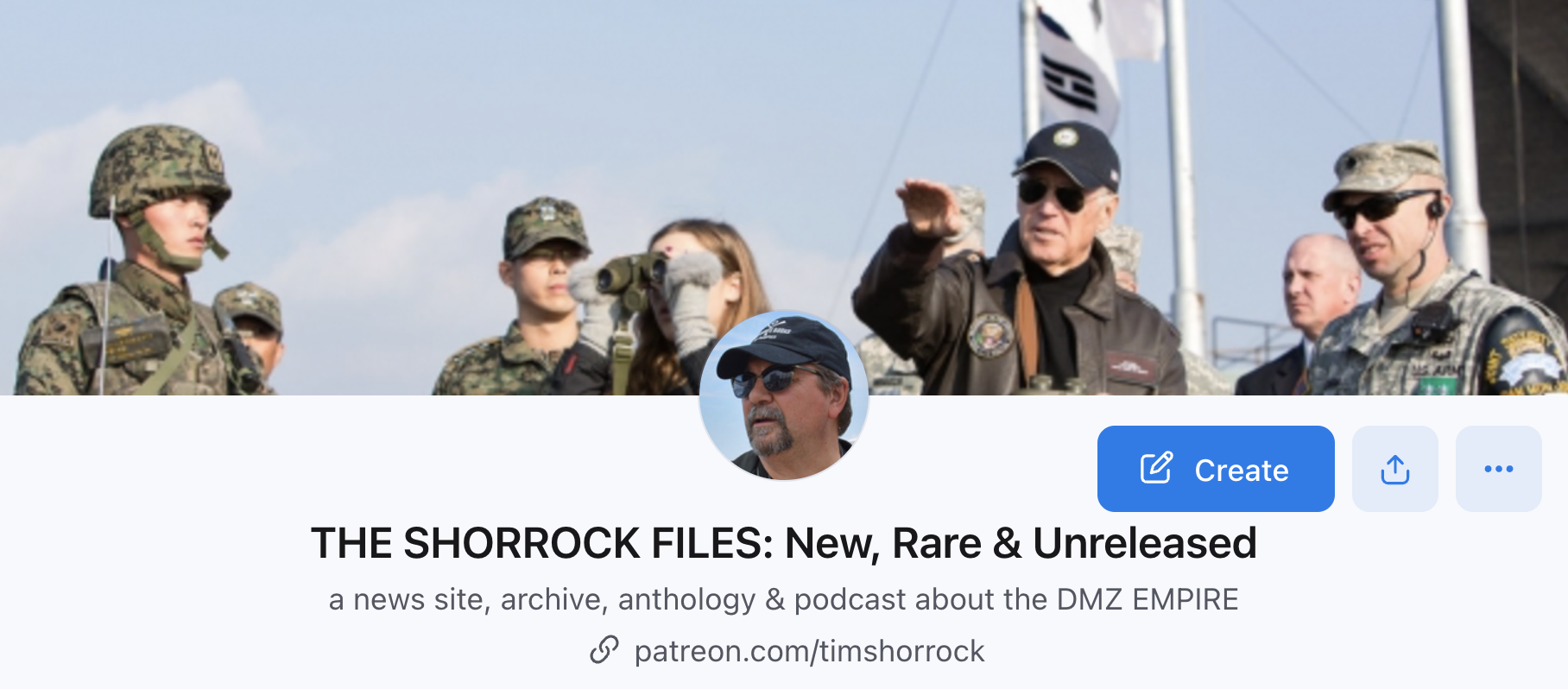In the midst of the massive pushback in Washington against the Trump administration’s denuclearization talks with Kim Jong Un, a former US intelligence analyst did some truth-telling about past negotiations.
“The Agreed Framework did not fail; it was murdered. It was deliberately destroyed by the Bush administration.”
The speaker was Robert Carlin, a former analyst of North Korea for the CIA and the State Department’s Bureau of Intelligence and Research. He visited the North many times as a senior policy adviser to the Korean Peninsula Energy Development Organization, formed as a result of the 1994 Agreed Framework between the Clinton administration and the North’s former leader, Kim Jong-il, and writes frequently for 38North, a highly respected research center in Washington.
The occasion was the Jeju Forum for Peace and Prosperity on Jeju Island in South Korea, an annual conference sponsored primarily by the South Korea’s Ministry of Foreign Affairs. Carlin spoke on a panel on “Reducing Tension and Building Confidence in the Korean Peninsula” moderated by Sonja Bachmann, a “teamleader” on Northeast Asia and the Pacific at the United Nations’ Department of Political Affairs. Among those joining them was Glyn Ford, a member of the British Labour Party and a former member of the European Parliament who has been to North Korea over 50 times.

At one point, discussion turned to previous agreements by North Korea to denuclearize – all of which have failed, according to conventional wisdom. Ford, however, chose to focus on the Agreed Framework, which he said he considers “the most successful failure.”
They all ended in failure, but they didn’t all end in the same failure. If one looks at what I consider the most successful “failure” was the Agreed Framework. The Agreed Framework actually halted, stopped the North Korean nuclear program for between six to eight years. I can’t think of any one of the other agreements that did anything within several orders of magnitude as important as that. So it seems to me that if we’re going to learn from the past, the new agreement will look something like the Agreed Framework.
But why did it fail? As I described it in The Nation in a deep-dive into the agreement in September 2017,
The framework collapsed in 2003 after the Bush administration—which had come to office with grave doubts about the agreement—dredged up US intelligence from the 1990s to accuse the North of starting a highly enriched uranium program as a second avenue to the bomb. (It hadn’t yet, though it was scouting the world for enrichment machinery to use later.) Bush tore up the framework agreement, exacerbating the deterioration in relations he had sparked a year earlier when he named North Korea part of his “axis of evil” in January 2002. In response, the North kicked out the IAEA inspectors and began building what would become its first bomb, in 2006, triggering a second nuclear crisis that continues to this day.
But it was even worse than that, Carlin told the Jeju Forum. Here’s his remarks in full, transcribed from the tape I made of the open session.
I think the question of history is pretty important and not very well understood. To label everything a failure is to misunderstand that there is vast differences between various agreements, their arcs, what they accomplished, and what happened.
The Agreed Framework did not fail; it was murdered. It was deliberately destroyed by the Bush administration. That’s not a failure. We already had plans in place at my level to begin to deal with the enrichment program in a way that would not have destroyed the Agreed Framework. So I think it’s a mistake to call it a failure, although at the stratospheric level it didn’t work and therefore you could say its life was cut short.
The problem with the Agreed Framework as described by the Bush administration, and if you read John Bolton’s memoirs, by Bolton and Donald Rumsfeld and Vice President Cheney, was cheating on the part of the North Koreans. As if cheating was the most cardinal sin anybody could commit and that the Agreed Framework should be thrown overboard because of this. We knew about the North Korean enrichment program before, and we thought we ought to deal with it. It was serious. But we didn’t want to throw the Agreed Framework overboard because it had accomplished so much already and was going to continue to restrain the North Korean plutonium program.
So the question is, why did dealing with the enrichment program have to end the Agreed Framework? It was a bad decision. I think it had bad consequences which we are dealing with today.
In January 2001, when President Clinton left office, North Korea had zero nuclear weapons. Today they have 30, 40, the Defense Department says 60. Something went wrong, and I think it began in October 2002 when we met with the North Koreans in Pyongyang.

